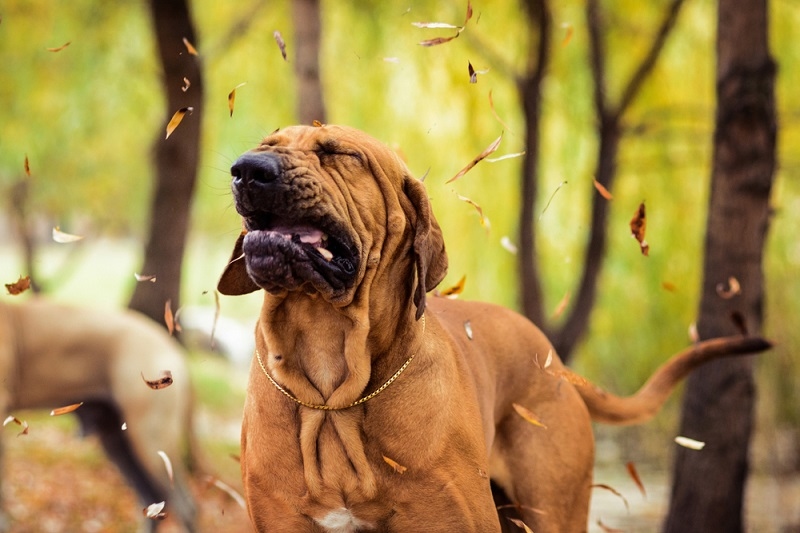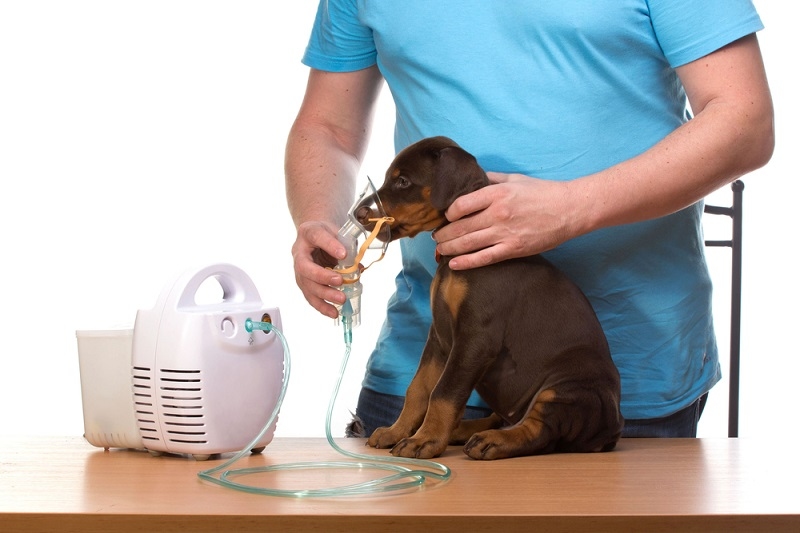
You notice your dog sitting quietly, and all of a sudden it starts coughing. A sharp little sound, which can be wet as well as dry.
This makes you wonder, why is my dog coughing? It is normal for dogs to cough sometimes. They cough to clear their throat or lungs, but when it happens too often, it can mean something is wrong.
Understanding the different dog coughing causes is essential for you as a dog owner because it helps you to understand what requires extra care and what does not.
In this blog, you will learn everything about dog coughing and find out the reasons that cause it.
A dog cough is a signal that their body is trying to do something. Sometimes it is clearing dust, smoke, or pollen. At times, it can be the lungs or heart telling you that something is wrong.
Dogs cough in different ways, like a small barky cough, a honk, or a wet hacking sound. Sometimes it comes with gagging, and sometimes it happens only when the dog gets excited or pulls on the leash.
If a dog coughs a lot, more than a couple of days, or the cough seems strong, it should not be ignored. If coughing comes with tiredness, loss of appetite, or trouble breathing, it is time to check with a vet.
Coughing can be caused by various reasons, and you can find the most common reasons in the following list:
Dogs get viruses and bacteria, because of which kennel cough is the most common. Dogs can easily pass it to each other.
Dust, smoke, pollen, or grass allergies can irritate the throat or lungs, which can trigger coughing.
Some heart problems cause fluid in the lungs. This makes dogs cough often, especially at night or when resting.
Smaller dogs may have a trachea that collapses, which makes a honking cough sound.
Worms in the lungs or heart can lead to coughing and breathing difficulty.
Dogs sometimes inhale seeds, food, or toys. If something gets stuck, coughing starts suddenly.
Some dogs cough and gag together. Gagging can happen if mucus, food, or fluid irritates the throat. Pneumonia or reflux can also cause this. In reflux, stomach contents irritate the esophagus.
Dog coughing and gagging may look like choking, but it is different. If it happens repeatedly, it could be a serious problem. Blockages, aspiration pneumonia, or infections might be the cause. Repeated gagging should be checked by a vet.
Dog reverse coughing and sneezing is a different kind of sound. It happens when the dog pulls air quickly into the throat. Not pushed out, pulled in. It looks alarming but often is harmless.
Dogs may do it when excited, when the leash pulls on their neck, or when air changes temperature suddenly. But if it happens frequently, it can indicate allergies, nasal irritation, or an airway problem. Most of the time, it is not dangerous.

Treatment depends on the cause. Some common ways to treat dog coughing include:
Infections: Antibiotics can treat bacterial infections.
Parasites: Deworming medications remove worms from lungs or heart.
Allergies: Reducing exposure to smoke, dust, and sprays can help.
Heart disease: Medicines may support the heart and reduce coughing.
Airway problems: Surgery or long-term care may be needed in some cases.
Human cough medicines should never be given to dogs. They can be harmful, and only a vet can suggest safe treatments.
Must Read: Learn About Behavior and Vet Visit Signs of Dog Panting
Coughing may be the first sign, but other things can show problems too:
Heavy breathing: Struggling for air is urgent.
Lack of energy: If a dog is tired or avoids play, it is a warning.
Loss of appetite: Not eating along with coughing can indicate illness.
Weight loss: Ongoing coughing with weight loss may mean serious disease.
Discharge: Green or yellow fluid from the nose or eyes can show infection.
If these signs appear with coughing, a veterinarian should be contacted right away.
Vets follow steps to find the cause of coughing:
This careful approach helps vets know the reason for coughing and what treatment will help.
Dogs get viruses, bacteria, or fungi.
Kennel cough and canine influenza are common.
Symptoms: dry cough, nasal discharge, sometimes fever.
Heart problems can lead to fluid in lungs.
Dogs cough more when resting or sleeping.
Early treatment helps dogs feel better.
Smaller breeds like Chihuahuas or Pomeranians are prone.
Airway weakens and closes during breathing.
Causes a honking cough that is easy to hear.
Some simple steps can help dogs feel better at home:
A humidifier or steamy bathroom loosens mucus.
You should make sure that your completely avoids smoke, sprays, or strong scents.
It is essential for your dog to always stay hydrated, and make sure water is always available for them.
Your dog needs rest and should avoid all kinds of heavy exercises to recover properly.
You should notice how often they are coughing and what the things are that are triggering it.
These things are not done for replacing the medical care but for providing better care.
Some situations that need urgent attention are listed below:
In these cases, veterinarian assistance is essential because they can provide proper treatment.
Dog coughing can happen for many reasons, from mild irritations to serious illness. Watching for signs, understanding dog coughing causes, and seeking timely dog coughing treatment can help keep dogs safe and healthy. Every cough has a story, and noticing it can make a big difference.
This content was created by AI